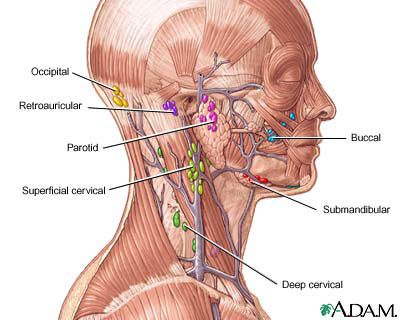Discovered 231 new genes related to head and neck cancer
In an annual meeting organized by the Surgical Association in San Diego, the researchers said they identified 231 new genes linked to head and neck cancers. These are the most dangerous cancers that have killed 2.1% of all cancer deaths in the United States.
Previously, scientists only discovered 33 genes related to head and neck cancer. "The discovery of these new genes will help you," said Maria J.Worsham, Henry Ford Hospital's Director of Ear and Mouth Research Research in Detroit, Michigan, who led the study. The scientist takes a new step in selecting specific target and head genes, opening the door for new molecular techniques in early detection and treatment of head and neck cancer. "

Illustration.
In 2009, more than 55,000 Americans had head and neck cancer, including cases of oral cancer, nasal cancer, sinus cancer, salivary gland cancer, and about 13,000 people would die. According to the American Cancer Institute, 85% of head and neck cancers are related to tobacco use. People who smoke and drink alcohol are at a higher risk of this type of cancer than many who smoke or drink only.
In order to identify new genes that can aid in the diagnosis and treatment of head and neck cancer, Worsham's team used a full genetic metylation to find genes with regions. stimulating the gene to be altered by DNA methylation.
Total genetic metylation measures 231 genes that are likely to be associated with head and neck cancer that have not been previously published. "The DNA methylation method is emerging as one of the most promising molecular use strategies in early detection of cancer without depending on its role in the development process," Worsham said. tumor growth.
Abnormal metylation can result in loss or loss of gene function. However, treatment with recent drugs may reverse the methylation of DNA samples, reactivate the function of the "diverged" genes and restore the function of normal genes. Therefore, a specific genome for head and neck cancers may open new avenues for methyl reduction. "
- How to recognize early types of head and neck cancer
- Compound from magnolia can treat head and neck cancer
- Foods that can help you prevent head and neck cancer
- Compounds in fruits are resistant to head and neck cancer
- Kisses can spread HPV viruses
- The HPV vaccine can prevent cancer of the neck and head
- Coffee can help prevent head and neck cancer
- Aspirin reduces the risk of head and neck cancer
- Detection of genes that cause ovarian cancer
- Cancer patients need only 6 radiation treatments thanks to new techniques
- The most dangerous time of smoking
- Discovered nearly 200 genes related to cancer
 Why do potatoes have eyes?
Why do potatoes have eyes? 'Tragedy' the world's largest carnivorous life: Death becomes ... public toilet
'Tragedy' the world's largest carnivorous life: Death becomes ... public toilet Tomatoes were once considered 'poisonous' for 200 years
Tomatoes were once considered 'poisonous' for 200 years Detecting microscopic parasites on human face
Detecting microscopic parasites on human face